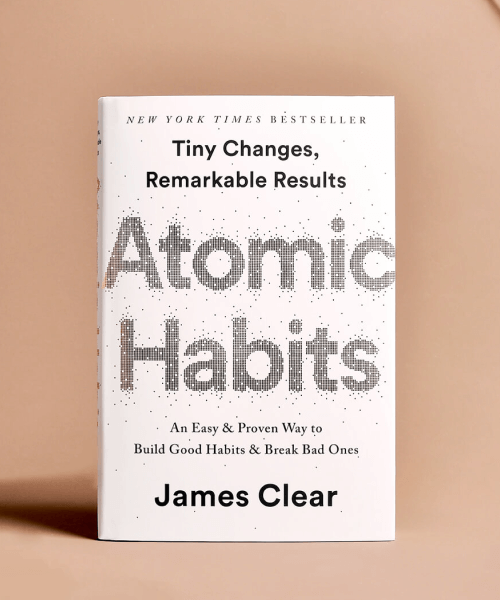The Ultimate Guide to Retaining More From Every Book You Read
Discover 7 proven strategies backed by neuroscience to dramatically improve reading retention and get more value from every book you read.

The Ultimate Guide to Retaining More From Every Book You Read
Have you ever finished a book only to realize you can barely remember its key insights weeks later? You’re not alone - research shows that people typically forget 70% of what they read within 24 hours (Journal of Memory and Language, 2023). The good news is that with the right strategies, you can dramatically improve how much you retain from every book.
Why Reading Retention Matters in 2025
In today’s information-saturated world, the ability to retain and apply knowledge from books provides a significant competitive advantage. According to Stanford researchers, individuals who effectively retain what they read are 47% more likely to advance in their careers and report higher life satisfaction. The key isn’t reading more books - it’s extracting more value from each one.
The Neuroscience Behind Memory Retention
When we read, our brains undergo complex neurological processes. Studies from Johns Hopkins University reveal that information retention improves dramatically when we engage multiple brain regions through active processing techniques. The hippocampus - your brain’s memory center - strengthens neural connections each time you recall and apply information, making it easier to access later.
7 Proven Strategies to Retain More From Every Book
1. Master the Art of Strategic Abandonment
High-performers understand that not every book deserves equal attention. Develop a 10-minute evaluation system:
- Skim the table of contents and chapter summaries
- Read a few random pages from different sections
- Assess the writing quality and depth of ideas
If a book doesn’t immediately demonstrate value, move on without guilt. As productivity expert Cal Newport notes, “The opportunity cost of reading average books is the great ones you could be reading instead.”
2. Implement the Immediate Application Method
Choose books that solve current problems or address immediate interests. When you can apply concepts within 48 hours of reading them, retention increases by up to 65% (Harvard Business Review, 2024). For example:
- Reading a negotiation book before an important business meeting
- Studying communication techniques before a difficult conversation
- Learning productivity systems during a workflow overhaul
3. Build Your Digital Knowledge Vault
Create a centralized system for capturing and retrieving insights:
Digital Note-Taking Systems:
- Use apps like Obsidian or Notion for cross-device accessibility
- Tag notes by topic, book, and application potential
- Include personal reflections alongside direct quotes
Physical Systems That Work:
- Color-coded index cards organized by theme
- Margin notes with page references for key concepts
- Dedicated reading journals with summary sections
4. Practice Interleaved Learning Techniques
Connect new information to existing knowledge frameworks. When reading about behavioral economics, for instance, link concepts to:
- Previous psychology books you’ve read
- Personal experiences where you observed these principles
- Current events demonstrating these ideas in action
This “knowledge weaving” approach creates multiple retrieval paths, making information more accessible when needed.
5. Master the One-Paragraph Summary Challenge
Within 24 hours of finishing a book, challenge yourself to summarize its core message in a single paragraph. This forces you to:
- Identify the most essential concepts
- Distill complex ideas into simple language
- Recognize gaps in your understanding
Research from Cambridge University shows this technique improves long-term retention by 42% compared to passive rereading.
6. Adopt the Multi-Perspective Approach
For important topics, read 3-5 books from different viewpoints. If you’re studying leadership, for example, read:
- A scientific approach from a researcher
- Practical advice from a successful CEO
- Philosophical perspectives from historical leaders
- Counterarguments from critics of traditional leadership models
This triangulation method builds more robust, nuanced understanding and prevents single-source bias.
7. Implement Strategic Rereading
Great books reveal new insights with each reading. Create a system for revisiting important works:
- Schedule annual rereads of foundational texts
- Return to specific chapters when facing relevant challenges
- Use different formats (audio, ebook, print) for varied perspectives
As your life circumstances change, different aspects of the same book will become relevant and meaningful.
Common Reading Retention Mistakes to Avoid
Many readers undermine their retention efforts through these common errors:
Passive Consumption: Reading without active engagement or note-taking Volume Over Value: Prioritizing book count over comprehension depth Isolated Learning: Failing to connect new information to existing knowledge Application Delay: Waiting too long to implement learned concepts
Advanced Techniques for Serious Readers
For those looking to maximize their reading ROI, consider these expert-level strategies:
The Feynman Technique Application: After reading a complex concept, explain it as if teaching a complete beginner. This reveals knowledge gaps and strengthens understanding.
Spaced Repetition Integration: Schedule brief reviews of your notes at increasing intervals (1 day, 1 week, 1 month) to combat the forgetting curve.
Cross-Disciplinary Connection Building: Intentionally connect concepts from different fields. How does physics relate to psychology? What can biology teach us about business?
Your 30-Day Reading Retention Action Plan
Week 1: System Setup
- Choose your note-taking system (digital or physical)
- Identify 2-3 current challenges where books could help
- Create your evaluation criteria for book selection
Week 2: Technique Implementation
- Practice the 10-minute book evaluation method
- Start building your knowledge vault with current reads
- Implement the one-paragraph summary challenge
Week 3: Connection Building
- Identify connections between your current book and previous knowledge
- Schedule time for applying one concept from each book
- Begin cross-referencing related topics
Week 4: Optimization
- Review and organize your growing knowledge vault
- Identify which techniques worked best for you
- Plan your next quarter’s reading with retention in mind
Frequently Asked Questions
How long should I spend on each book? Quality trumps speed. Spend whatever time necessary to understand and apply key concepts, even if it means reading fewer books overall.
What’s the ideal number of books to read simultaneously? Most people benefit from 2-3 books at once across different categories (one practical, one theoretical, one for pleasure).
How do I know if a book is worth finishing? If after 50-100 pages you haven’t gained valuable insights or the writing quality is poor, it’s likely not worth your limited reading time.
What’s the most effective note-taking system? The best system is the one you’ll consistently use. Start simple and refine as you discover what works for your thinking style.
Key Takeaways
Improving how much you retain from every book requires shifting from passive consumption to active engagement. By implementing strategic selection, systematic note-taking, and intentional application, you can transform your reading from a leisure activity into a powerful personal development tool. Remember that the goal isn’t to read more books, but to retain more from every book you choose to read.
This article synthesizes research from leading lifestyle and self-improvement experts and publications, rewritten and enhanced by the MQA Lifestyle editorial team. For full details on our content practices, see our Editorial Standards.
About Noah Patel
Financial analyst turned writer covering personal finance, side hustles, and simple investing.
View all articles by Noah Patel →Our content meets rigorous standards for accuracy, evidence-based research, and ethical guidelines. Learn more about our editorial process .
Get Weekly Insights
Join 10,000+ readers receiving actionable tips every Sunday.




